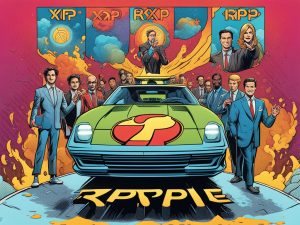Meta and Musk Team Up to Challenge OpenAI’s Shift to Profitability 🤝
This year, Meta CEO Mark Zuckerberg and Elon Musk have come together to confront OpenAI’s recent decision to transition to a profit-oriented model. This shift has ignited discussions about its ramifications for ethics in artificial intelligence and the broader implications for innovation within Silicon Valley. The collaboration between these prominent tech figures highlights a growing concern among industry leaders regarding the integrity of AI development and the potential exploitation of previously non-profit resources for personal gain.
Meta and Musk’s Stance Against OpenAI’s Changes 🚫
With Elon Musk aligning himself with Meta, a significant pushback against OpenAI’s restructuring has emerged. In an official correspondence to California Attorney General Rob Bonta, Meta articulated concerns that OpenAI’s new path could facilitate the exploitation of non-profit assets for monetary gain. This shift, according to Meta representatives, represents a departure from the organization’s foundational mission of serving the public interest.
Despite a history of rivalry with Musk, Zuckerberg has assumed a vital role in this collective effort. Their mutual apprehension regarding OpenAI’s direction centers on the potential for other startups to mimic this profit-driven model, undermining the principles established by non-profit organizations. Meta’s appeal calls for an inquiry into OpenAI’s practices, specifically tracking the potential misuse of tax-exempt contributions.
The Ethical Debate Surrounding AI Innovation ⚖️
Elon Musk, a co-founder of OpenAI, has consistently voiced his opposition to the company’s shift toward profit-making. He argues that this transformation contradicts the initial intentions of the organization, which were aimed at benefiting society. Musk’s criticism extends beyond OpenAI’s strategies; he has initiated legal action against both Microsoft and OpenAI, alleging monopolistic behaviors that threaten market fairness. With Zuckerberg joining Musk’s ranks, their partnership adds significant heft to the opposition against OpenAI.
This change in OpenAI’s operational framework prompts urgent inquiries into the precedence of profit over ethical considerations within the AI sector. Musk and Meta contend that OpenAI’s current trajectory may create a hazardous blueprint for other enterprises in the tech landscape, undermining the ethical foundations laid by previous non-profit initiatives.
Impact of a Whistleblower’s Death on AI Ethical Considerations 💔
The urgency of the ethical discussions surrounding OpenAI has escalated following the tragic passing of Suchir Balaji, a former researcher at the organization. Balaji had previously flagged serious concerns regarding copyright infringements within OpenAI’s frameworks and was found dead in his residence. Authorities determined the cause to be suicide, which has amplified the scrutiny on the ethical dilemmas encountered by AI professionals.
As these events unfold, critics continue to express strong objections to OpenAI’s pivot towards a profit-focused model, arguing it undermines the organization’s initial values. The circumstances surrounding Balaji’s death have exacerbated the already contentious climate, raising critical questions about the moral obligations of AI entities in safeguarding the well-being of their employees and the communities they serve.
Hot Take: Implications for the Future of AI Ethics and Responsibility 🌐
This year, the partnership between Meta and Musk represents a pivotal moment in the ongoing discourse surrounding the ethical implications of artificial intelligence. As these influential figures challenge OpenAI’s shift toward profitability, it is essential for industry stakeholders to reconsider the impact of such transformations. The potential for profit-driven motives to overshadow ethical practices necessitates a vigilant stance from the broader tech community. The tragic outcomes arising from whistleblowing incidents should serve as a sobering reminder of the responsibilities that companies hold towards their employees and society. Only through collaborative efforts can the integrity of AI continue to thrive in alignment with its foundational purpose of creating and distributing knowledge for the greater good.





 By
By
 By
By


 By
By
 By
By